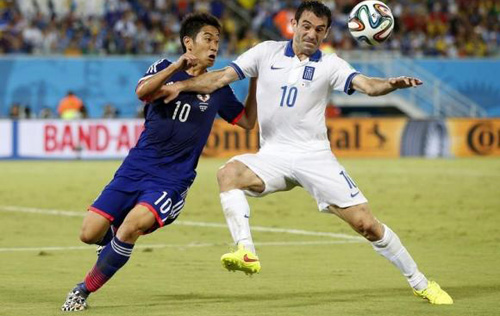 A missile strike on Libyan leader Col Gaddafi’s compound in Tripoli has destroyed a building which coalition officials said was a command centre.Journalists were shown the wrecked building but it was not clear if there were any casualties.It comes as a coalition of countries including the US, UK and France continue strikes to enforce a UN-mandated no-fly zone over Libya.Col Gaddafi has been fighting a rebellion that broke out last month.US officials have said Col Gaddafi himself is not a target of the air strikes, which they say are aimed at his armed forces and air defence systems.On Sunday night anti-aircraft fire rose over Tripoli and several explosions were heard. A BBC reporter saw a column of smoke rising from the direction of Bab al-Aziziya, where Col Gaddafi has his military base and compound.Western journalists taken by Libyan officials to the compound were shown a ruined three or four-storey building that the Libyans said had been bombed by the allied forces.An official from one of the coalition countries, who asked not to be named, told journalists the strike destroyed Col Gaddafi’s “command and control capability”.
A missile strike on Libyan leader Col Gaddafi’s compound in Tripoli has destroyed a building which coalition officials said was a command centre.Journalists were shown the wrecked building but it was not clear if there were any casualties.It comes as a coalition of countries including the US, UK and France continue strikes to enforce a UN-mandated no-fly zone over Libya.Col Gaddafi has been fighting a rebellion that broke out last month.US officials have said Col Gaddafi himself is not a target of the air strikes, which they say are aimed at his armed forces and air defence systems.On Sunday night anti-aircraft fire rose over Tripoli and several explosions were heard. A BBC reporter saw a column of smoke rising from the direction of Bab al-Aziziya, where Col Gaddafi has his military base and compound.Western journalists taken by Libyan officials to the compound were shown a ruined three or four-storey building that the Libyans said had been bombed by the allied forces.An official from one of the coalition countries, who asked not to be named, told journalists the strike destroyed Col Gaddafi’s “command and control capability”.
Earlier at the Pentagon, Navy Vice Adm William Gortney said the military action, which began on Saturday, had been “very effective in significantly degrading the regime’s air defence capability”.He said ground forces moving on rebel positions were also open to attack. But he added that neither Col Gaddafi nor his residence would be targeted.A US official cast doubt on a Libyan government claim that its armed forces were observing a ceasefire, despite claims to that effect on Friday and Sunday.President Barack Obama’s national security adviser Tom Donilon said the ceasefire “isn’t true or has been immediately violated”.The BBC’s Allan Little in Tripoli says pro-Gaddafi troops have tried to enter Benghazi and have been in action at Misrata.A rebel spokesman in Misrata told the BBC that pro-Gaddafi forces had launched fresh attacks on Sunday with heavy shelling. The action against Col Gaddafi’s military began on Saturday afternoon with French air strikes against targets in the east of the country. A barrage of more than 100 cruise missiles, launched from US and UK war ships and submarines followed.
US Defence Secretary Robert Gates has said that while the US will continue to play a part in military operations against Col Gaddafi’s forces, it “will not have the pre-eminent role”.”I think there is a sensitivity on the part of the Arab League to being seen to be operating under a Nato umbrella,” Mr Gates said. “And so the question is if there is a way we can work out Nato’s command and control machinery without it being a Nato mission and without a Nato flag, and so on.”Mr Gates also said a break-up of Libya would be a formula for instability. The east of the country, where the month-old revolt began, has historically been much more opposed to Col Gaddafi’s rule, while the west and the area around Tripoli constitute his heartland.Meanwhile, heavy gunfire and sporadic explosions were heard in the streets of the rebel stronghold of Benghazi on Sunday night, a witness told Reuters.There were also unconfirmed reports of pro-Gaddafi fighters opening fire from cars in the city.
“Benghazi is not completely safe from attack but it is certainly under less threat than it was yesterday,” he said.Meanwhile, the build-up of forces to enforce the no-fly zone continues.Qatar is to send four planes to join the coalition enforcing the UN-mandated no-fly zone, the US and France have said.The move would make Qatar the first Arab country to play an active part in the campaign against Col Gaddafi, who has been battling a month-long revolt.Other Arab countries are also preparing to join the campaign against Col Gaddafi, Vice Adm Gortley said, adding that those governments would make their own announcements in due course. The French aircraft carrier Charles de Gaulle has left the Mediterranean port of Toulon for Libya, while Denmark and Norway are each sending six planes. Spain has sent at least three planes, plus a refuelling aircraft, while Italy also has jets ready to deploy. Canada has deployed six jets to Sicily and is preparing them for action.The head of the Arab League, who supported the idea of a no-fly zone, has criticised the severity of the bombardment.”What is happening in Libya differs from the aim of imposing a no-fly zone, and what we want is the protection of civilians and not the bombardment of more civilians,” said Arab League Secretary General Amr Moussa.Arab League support was a key factor in getting UN Security Council backing for the resolution authorising the move.Col Gaddafi has ruled Libya for more than 40 years. An uprising against him began last month after the long-time leaders of neighbouring Tunisia and Egypt were toppled – BBC












